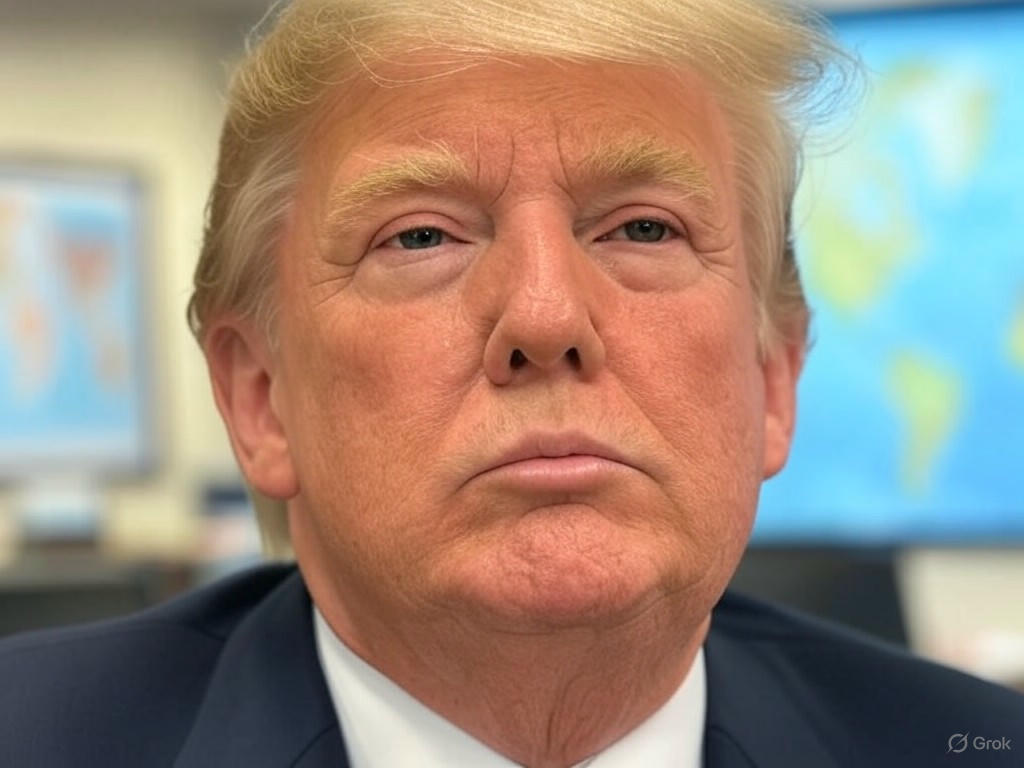Market Tensions Rise: Trump’s Iran Stance, Tesla’s Slide, and Fed Uncertainty
The financial markets are on edge as geopolitical tensions and economic uncertainties collide. Recent remarks from former President Donald Trump have sparked intense speculation about potential U.S. involvement in escalating conflicts in the Middle East. Trump has publicly demanded that Iran capitulate without conditions, a statement that has rattled investors already wary of global instability. While the specifics of any military collaboration with Israel remain unclear, the possibility of heightened conflict in the region has contributed to volatility in Dow Jones futures, with traders bracing for potential disruptions in oil supplies and broader economic fallout.
Amidst this geopolitical storm, the business world is also grappling with domestic challenges. Tesla, a darling of the tech and automotive sectors, has seen its stock price take a significant hit. The electric vehicle giant’s shares have skidded amid concerns over supply chain bottlenecks, rising production costs, and fierce competition in the EV market. Analysts suggest that Tesla’s recent performance is emblematic of broader pressures facing high-growth tech companies, as inflationary trends and shifting consumer priorities weigh on investor confidence. For many, Tesla’s struggles are a reminder of the fragility of even the most innovative firms in an unpredictable economic climate.
Adding to the market’s unease is the looming presence of Federal Reserve Chairman Jerome Powell. With inflation remaining stubbornly high and economic growth showing signs of slowing, all eyes are on the Fed’s next moves. Investors are anxiously awaiting Powell’s upcoming statements for clues about potential interest rate hikes or shifts in monetary policy. The central bank’s decisions could either stabilize or further unsettle an already jittery market, as businesses and consumers alike grapple with borrowing costs and spending power. Some experts warn that a hawkish stance from the Fed could exacerbate the challenges faced by companies like Tesla, while others argue that decisive action is necessary to curb inflation and restore long-term confidence.
The convergence of these factors—geopolitical risks, corporate struggles, and monetary policy uncertainty—has created a perfect storm for financial markets. Dow Jones futures, often seen as a barometer of investor sentiment, have fluctuated wildly in recent trading sessions, reflecting the deep uncertainty pervading Wall Street. Energy stocks, in particular, are under scrutiny as fears of supply disruptions tied to Middle East tensions drive oil prices higher, potentially adding another layer of inflationary pressure.
As the situation unfolds, market participants are left to navigate a landscape fraught with risk. Trump’s hardline rhetoric on Iran may or may not translate into tangible action, but its impact on sentiment is undeniable. Meanwhile, Tesla’s woes and the Fed’s looming decisions serve as stark reminders of the interconnected challenges facing the global economy. For now, investors can only watch and wait, hoping for clarity amid the chaos. The coming weeks will likely prove critical in determining whether markets can weather this storm or if deeper turbulence lies ahead.


